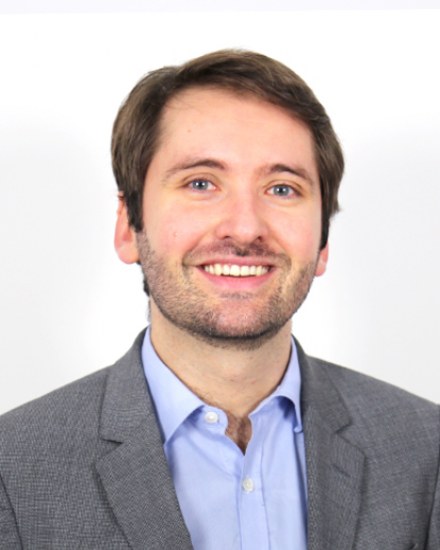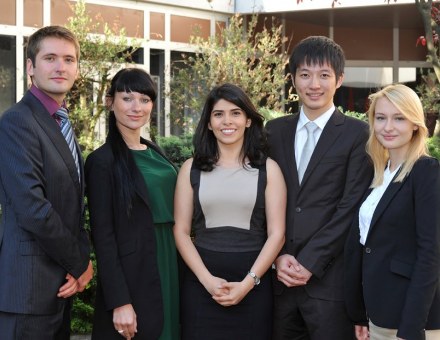Driven to do a complete professional U-turn after studies in Computer Science and initial work experience in the hospitality industry, Alexandre Nicolau saw the opportunity of a lifetime in the form of the emlyon MSc in Luxury Management & Marketing. 10 years later and he still sees this decision and the professional and multicultural opportunities it gave him as life changing. He tells his story.

From IT studies and then working in a hotel to your present position of Business Development Manager at Jaeger-LeCoultre is quite some change. How do you explain such a shift?
Soon into my Computer Science education I realized that I wanted to pursue a career in an industry with a more significant human relational dimension. While working in a 5-star hotel on the French Riviera, my conception of luxury went from “Luxury equals Hermès” to a much more nuanced understanding of the industry from niche luxury to a more volume-oriented approach. This is when I decided that luxury and studies in that direction were the right option for me. It’s safe to say I’ve learned a great deal more since, both during my time at emlyon in 2011-12 and working for the luxury watch companies Roger Dubuis and now Jaeger-LeCoultre.
What aspects of the program did you feel were the most enriching at the time? To what extent have they proven useful in your career since?
The multicultural side to the program was and is key. At the time there were study options in Switzerland and China, and I grabbed the chance with both hands to see how business is done in elsewhere in the world. I also liked the intensity of the MSc – it felt like a “young MBA”, so comprehensive was the content in a short space of time. We were living in an international environment 24/7 and learning about the luxury industry in all its complexities and beauty. Previously I only viewed the sector from a consumer perspective but thanks to the learning experience offered by emlyon business school, I discovered the industry from a company and brand angle as well. In my current position I can be on the phone with Japan one day, the next morning with China and then the US in the afternoon. Thanks to the cultural sensitivity I acquired during the program, I started out my career equipped to deal with different ways of doing business all around the world.
In terms of concrete skills and knowledge, how did the program give you the right grounding for the career you have embarked on since?
I’d say a blend of hard and soft skills. Whilst the main aim of the MSc isn’t necessarily to encourage people to become entrepreneurs straight after graduation, I actually felt I had the tools to set up my own business, be it the daily grind of computer-based work, the presentational skills you need to pitch convincingly, teamwork, or the knowledge of how luxury brands and the industry operate elsewhere in the world. The Chinese experience was a real shock for me but in the positive sense. It really opened my eyes to a part of the world that has grown exponentially in recent times.
On a related note, what changes have you observed in the industry since the beginning of your career and how have you adapted?

Well, like I say, China is having a huge impact across the industry so the exposure the program gave me to the country and their business culture was of enormous help. In contrast to, say, Europe, in China the luxury industry is not as “historical” if you like. It’s a modern phenomenon and the purchasing power of the Chinese has grown rapidly, meaning they have not just a genuine appetite for luxury but also the financial means. This will continue to rise as soon the changing VAT policy in China for such goods will mean they will no longer have to travel to Europe to get their hands on their favourite luxury brands for much less than in their homeland. Europe will therefore find itself having to align in terms of prices, including in Switzerland where I am based and where, until recently, a good 50% of summer tourists were Chinese flocking over to buy luxury products. My studies at emlyon business school introduced me to this part of the world, educated me in all kinds of ways, and prevented me from falling into the cultural prison of misunderstanding different cultures and business approaches. Asia (and China especially) are leading the way and the highly multicultural nature of the MSc program meant that I was ready and willing to explore how to do business around the world from my base in Switzerland.


